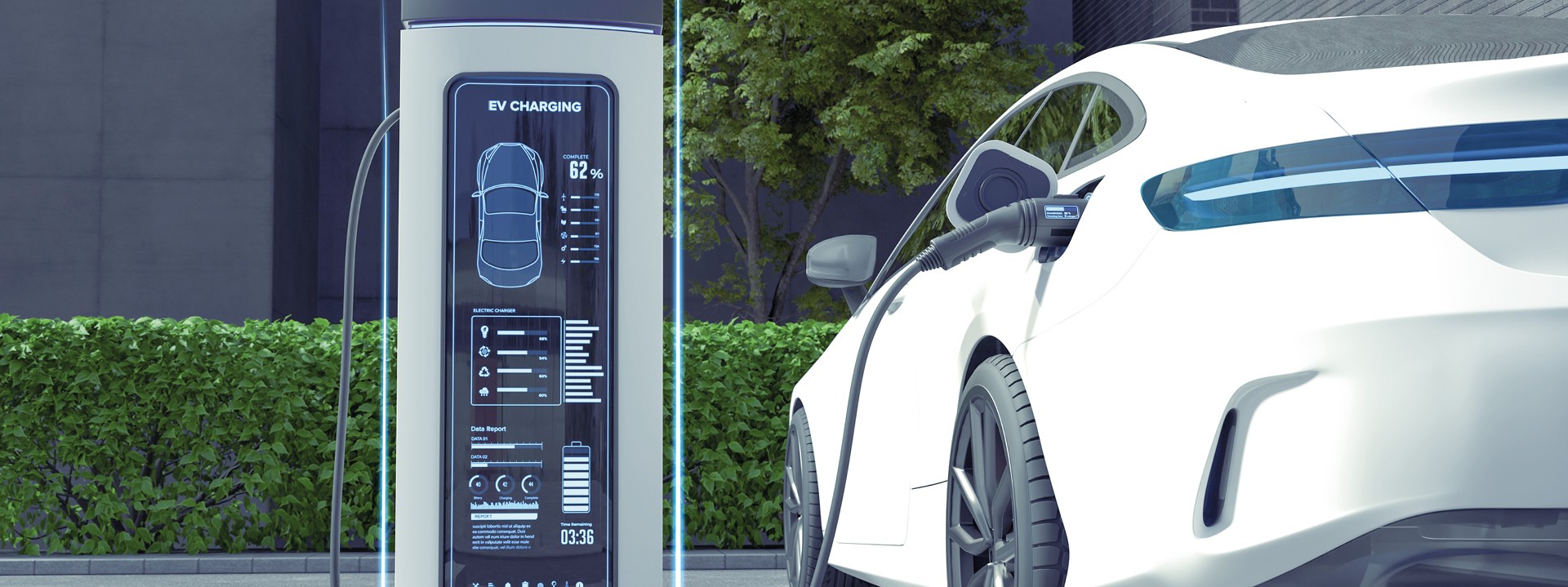Safe, reliable, and ready for the market – with testing by experts
A safe and efficient charging infrastructure is an essential prerequisite for electromobility to penetrate the market. This applies equally to private electric mobility via electric cars, e-motorcycles, and e-scooters as well as to road freight transport with electrified commercial vehicles and trucks, rail transport, electric ship propulsion systems and electrically powered aircraft. Smart grids, which could become the backbone of the energy transition, also require technically high-quality charging stations to ensure a high grid stability.
In this context, the operational safety of charging stations plays a key role. Only devices that are verified to be safe are accepted on the market or are marketable at all. As a developer or supplier of charging stations or their components, you therefore have a big responsibility in many respects.
We support you with a wide range of safety-related product tests. These lead, for example, to a conformity assessment as a prerequisite for launching the product on the market. Benefit from our excellent global reputation and expertise. We are one of the pioneers in the introduction of testing services for charging systems.
As an accredited test laboratory, we carry out the required conformity assessment procedure for you. You benefit from our short testing times and our many years of experience, and improve your market position by having your products tested.
Tested operational safety increases market opportunities worldwide
Charging stations are complex systems. They usually contain an energy management system, intelligent grid communication or billing systems. By demonstrating compliance with all relevant safety and quality requirements, you increase your chances of expanding your market. We can also provide support with calibration law compliance.
With test reports or a test mark from TÜV Rheinland, a globally recognized testing organization, you not only demonstrate the operational safety and quality of your charging stations for electric vehicles. Our global reputation also helps you to market your products worldwide and to attract new business partners.
In addition, we use harmonized standards and standardized test protocols, which significantly reduces the time and cost it will take you to enter new markets.
| Electrical safety testing | Functional safety testing |
| Electromagnetic compatibility testing (EMC/EMF, FCC/ISED) | Data transfer/protocols (CHAdeMO, CharIN) |
| Climate tests (water penetration, dust and foreign matter/UV radiation/corrosion etc.) | Mechanical durability (flammability, glow wire test, etc.) |
| Conformity to standards | Development support for product launch |
| Assistance with conformity to calibration law |
| Low Voltage Directive 2014/35/EU, RED 2014/53/EU | Conductive charging systems for electric vehicles: EN/IEC 61851-1/-21/-22/-23/-24 |
| Inductive charging systems: IEC 61980-1/2/3 | In-cable control and protection device (IC-CPD) for mode 2 charging of electric road vehicles: EN/IEC 62752 |
| On-board/off-board chargers: UL 2202 | Personal protective systems: UL 2231-1/-2 |
| National Electrical Code (NEC): NFPA 70* | Conductive charging systems for electric vehicles with a primary voltage up to 600 V (AC): UL 2594 |
| Plugs, sockets, couplings etc.: IEC 62196 | EV charging cables: IEC 62893 |
| Liquid-cooled charging cables: 2PfGQ 2473 | Low-voltage circuits and controllers for EV charging stations: IEC 61439-7 |
Contact us about the testing of charging stations and their components.


